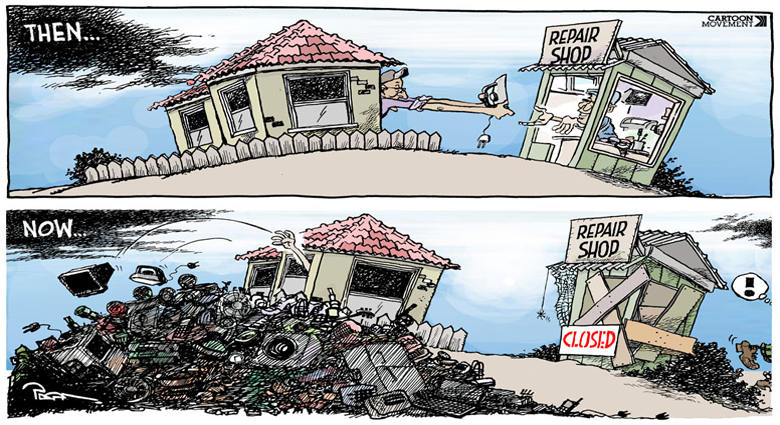You Are a Machine
Let’s own up to the truth right now: You are a finely-tuned, advice-giving machine.
"You’re a walking fountain of technical solutions, an epic resource of answers & solutions."
For years you’ve been trained, nurtured, encouraged and rewarded to share your point of view. You’re a walking fount of technical solutions, an epic resource of answers and solutions, of ways and means.
Clearly, that’s not such a bad thing. As a manager and a leader, an important part of your role is to have ideas and to put them into action, and to help others do the same.
But, giving the answer is an overused and overrated approach. And we all pay a price for its ubiquity.
The Price We’re All Paying
Let me put this bluntly. Think of all the advice you’ve been given in your life. Remember how much of it (i.e. most of it) was not that good, not quite right, a little off the mark, not totally appropriate. And then remember how the advice you did follow didn’t always work out the way you had hoped. And now you’ve come to see how little advice you’ve received that was useful and actionable and successful … Now that is exactly the truth about the advice you’ve dished out over the years.
You pay a price for defaulting to advice giving as often as you do:
- You’re spending your time solving other people’s problems rather than your own
- You’re limiting people’s potential which means you have an under-performing team
- You’re creating a group of people dependent on you and your advice
- You’re overwhelmed because you’re trying to do your job and their job too
- You’re team isn’t coming up with the best solutions to the challenges they face, because they’re just relying on your advice
The people you’re giving advice to pay a price:
- They don’t have the opportunity to think and solve the problems themselves
- They're unable to expand and fulfill their potential because they’re not thinking and figuring things out
- They’re becoming dependent on you and your advice
- They’re dealing with you as a bottleneck for getting things done
- They’re suffering from your advice not being as good as everyone thinks
Neuroscience Suggests an Alternative
Neuroscience provides its own perspective. Using neuroimaging we can watch the brain in real time. When you give someone advice, not much changes in the electrical activity. It keeps humming along.
But when you ask a good question that makes the person think, you can actually see the brain activity change. You can actually see the new neural pathways being formed. In other words, a good question can literally and physically increase someone’s capacity and their potential.
Two “bookends” to improve the impact of your advice
1. Start every conversation with this one question.
Typically when someone comes to us for help, they give an outline of what’s going on. And immediately, we leap ahead to how we’ll “add value”. It might be advice, it might be the magic solution, it might be some coaching.
And any of those might be just what they’re looking for. But you don’t really know.
So start every conversation by asking this:
“How can I help?”
Asking this question just slows things down a little and forces the person to make a clear request for what they want and need from you.
With a clear request, you’re able to give them what they really want, rather than just what you’ve assumed would be best. And that focus will save you time and energy while increasing the impact you have.
Some useful alternatives are “... and what would you like from me?” or “What’s my role in this?”
2. End every conversation with this one question.
One of your roles as a leader and a manager is to help increase the capacity of those you lead. Your job is to help them learn from the work they do, so next time they do it faster, better and with less help.
You already know from neuroscience that telling them the answer doesn’t help people learn, doesn’t help them create the new neural links that expand their capacity.
But what does is helping them reflect on what just happened. So at the end of every conversation or meeting, asking them this question:
"What was most useful about this for you?"
Asking this question works in three ways.
First, it frames the conversation you’ve just had as one of value. Notice, you’re not asking “was this conversation useful?”
Second, it helps them extract the value of the conversation they’ve just had with you. Often, this is the first time they’ll actually recognize and appreciate the wisdom.
And finally, it gives you feedback about what’s worked (and perhaps what hasn’t worked) so you can refine your approach in future conversations.
3. Don’t stop giving advice.
Even if you could, I’m not asking you to refrain from giving advice. Sharing wisdom and solutions is an essential skill for the anyone practicing the art of leadership.
I am asking you to recognize that it’s your default practice. And with that, as with every choice you make, there are both prizes and punishments.
"As a manager and a leader, an important part of your role is to have ideas & to put them into action."
Experiment by asking these two “bookend questions” as a way to slow the rush to advice and to increase the impact and the value of the advice you give.
"When we have arrived at the question, the answer is already near." - Ralph Waldo Emerson




.png)
.jpg)



What Did You Think?